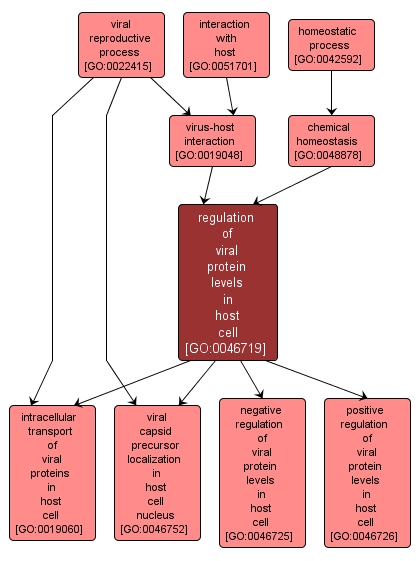GO TERM SUMMARY
|
| Name: |
regulation of viral protein levels in host cell |
| Acc: |
GO:0046719 |
| Aspect: |
Biological Process |
| Desc: |
Any virus-mediated process that modulates the levels of viral proteins in a cell. |
Synonyms:
- regulation of viral protein levels
|
|

|
INTERACTIVE GO GRAPH
|














